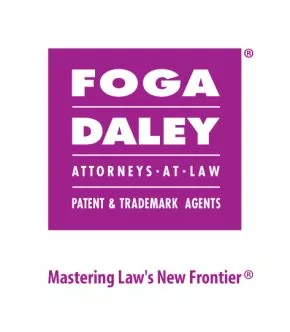- in European Union
In 2015 sweeping changes were made to Jamaica's Copyright Act through the Copyright (Amendment) Act of 2015 in force July 30, 2015 including new and expanded rights for copyright owners and performers and with that, new liabilities, offences and exceptions to infringement and a revival of Crown Copyright. Perhaps, most impactful, is an extension of the already long duration of copyright. Some of the changes brought about by the amendments were gestating for over ten (10) years while others gained momentum in a relatively short space of time.
The Copyright (Amendment) Act of 2015 is the most substantial set of amendments since the 1993 Act. It brought into effect several major substantive & administrative changes including:
- Extension of Duration of Copyright and Rights in Performances
- Express provisions on Ownership of Copyright and Crown Copyright
- New/expanded right for copyright owners
- New rights for Performers and Persons with Exclusive Recording Rights
- Offences for the circumvention of Technological Protection Measures (TPM) and altering of Rights Management Information (RMI).
- Liabilities & Exemptions for ISPs
- Exceptions for the Visually and Hearing Impaired
- New Provisions on Orphan Works
- Exceptions in relation to sound recordings
- Statutory Copyright Registration
- Regulation of Collecting Societies (Regulations still pending)
Main Factors of Change
The WIPO Copyright Treaty and the WIPO Performances and Phonograms Treaty (together known as the WIPO Internet Treaties (1996) to which Jamaica acceded in 2002) were the main catalysts for Jamaica's copyright amendments. However, the amendments seemed to take on 'a life of their own' particularly in the run up to the amendment Act. The result is that the Internet Treaties only account for a 'handful' of the amendments, namely the new/expanded rights for copyright owners, performers and persons with recording rights, liabilities/exemptions for ISPs and offences for circumvention and tampering with rights management information. Some provisions mandated by the Treaties were omitted from the 2015 amendments and are expected to be included in a subsequent amendment.
Extension of Term of Copyright
The extension of the term of copyright and related rights could be considered the flagship amendments of the 2015 Act. The Copyright Act of 1993 gave the minimum duration stipulated by the Berne Convention of life plus 50 years for works of authorship and 50 years for entrepreneurial works. Under the 2015 Act the term of copyright has been increased to life plus 95 years across the board. For example:
- Copyright protection for original literary, dramatic, musical or artistic works now lasts for the life of the author plus 95 years (up from 50).
- Copyright in a sound recording, film, broadcast or cable programme now lasts 95 years (up from 50) from the end of the calendar year in which it was made, or where it was made available to the public before the end of that period, the end of the calendar year in which it is so made available.
- Performances previously protected for 50 years now enjoy 95 years from the end of the calendar year in which the performance was recorded or if not fixed in a recording, from the end of the calendar year in which the performance takes place.
This increase was triggered mainly by the local music/recording industry seeking to rescue iconic reggae music from the public domain. Industry stakeholders had lobbied the Government for a longer term extension to preserve Jamaican recordings of iconic songs, like Many Rivers to Cross by Jimmy Cliff and One Love by Bob Marley created in the 1960s which had already fallen or were about to fall into public domain. However, the increased terms could prove problematic particularly because of their retroactive effect.The extensions apply retroactively as at January 1, 2012. Therefore all works for which copyright expired on January 1, 2012 up to July 29, 2015, gain another 45 years, and those thereafter are protected for life plus 95 years or 95 years as the case may be, and 50 years in the case of typographical arrangements.
Ownership of Copyright
Another interesting amendment relates to ownership of copyright. Express provisions on copyright ownership appear consequential to the provisions on term extension, but may create unwelcomed challenges for businesses. The 1993 Act departed from the UK and other copyright laws around the world by not exempting works created in the course of employment from the first ownership rule and the amendments seem to compound the issue.Under the 1993 Act, the author is deemed to be the first owner of the copyright unless there is an agreement to the contrary. The only statutory exception to the first ownership rule relates to works first published by or under the direction or control of a specified international organization.
The dilemma with this has been that in the case of a work done in the course of employment where one might assume that ownership should be deemed to rest with the employer, the absence of an agreement vesting copyright in the employer would have the effect of it resting with the employee. The 2015 Amendment Act for the first time makes reference to ownership in relation to an employer and the employee, but rather than bringing Jamaica in line with international norms it seems to reinforce the diversion. It states that where pursuant to an agreement between an employer and employee copyright in a work created by the employee has vested in the employer, the copyright expires 95 years from the end of the calendar year in which the work was made.
Crown Copyright
Interestingly, the Government 'climbed its way out' of this 'dilemma' by introducing a provision in the 2015 Amendment Act that copyright in works made by a person employed or engaged by the Crown under a contract of service, a contract of apprenticeship or a contract for services, is first owned by the Crown unless there is an agreement to the contrary.
Crown copyright works are protected, in the case of a typographical arrangement of a published edition, for 50 years from the end of the calendar year in which the work was made; and for any other work, 95 years from the end of the calendar year in which the work was made.
The content of this article is intended to provide a general guide to the subject matter. Specialist advice should be sought about your specific circumstances.


